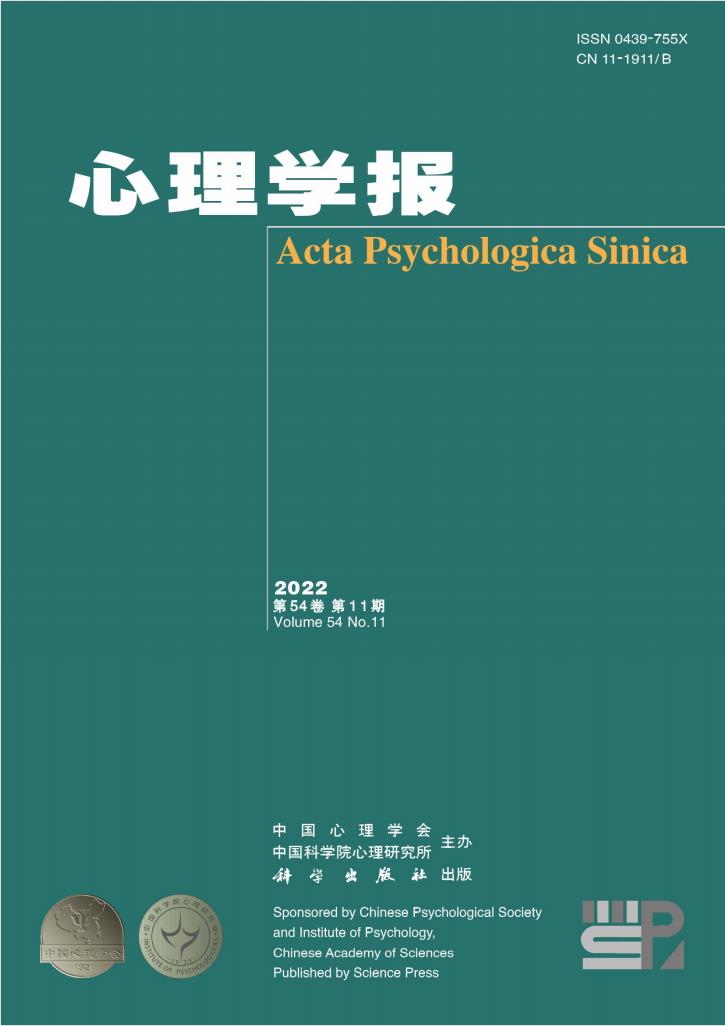差距评价中的概化效应:你我之间的差距有多大?
IF 1.3
4区 心理学
Q3 PSYCHOLOGY, MULTIDISCIPLINARY
引用次数: 0
摘要
在许多社会比较中,人们确切地知道自己和他人的行为。这些比较会导致自我与他人的差距。各种重要的决定都是基于对自己和他人之间差距的判断做出的。现有研究表明,对自我-他人差距的判断存在偏见,对他人的绝对表现未知。然而,我们感兴趣的问题是,当明确了自己和他人的绝对表现时,对自我-他人差距的判断是否准确。这项研究调查了自我-他人差距是如何由绝对和相对表现形成的。我们提出了泛化效应,即个体泛化他们的绝对表现,以评价他们与他人的相对位置,尽管实际的自我-他人差距是明确的。我们进行了七项研究(N=2766),以测试我们提出的对感知自我-他人差距的泛化效应。研究1采用了2(绝对表现:获得或损失)×2(相对表现:获得/损失)的受试者间设计。参与者被告知他们的表现以及同学在测试中的表现,并对自己和同学之间的差距进行评分。结果表明,与相对损失(“我不远落后于她”)相比,绝对收益导致相对收益(“我远远领先于她””)的自我-他人感知差距更大。相反,绝对损失导致相对损失(“我远远落后于她”)比相对获得(“我不远落后于她)更大的自我感知差距。本文章由计算机程序翻译,如有差异,请以英文原文为准。
The generalization effect in gap evaluation: How large is the gap between you and me?
In many social comparisons, people know exactly how they and others do. These comparisons induce a self–other gap. A variety of important decisions are made on the basis of judgments of the gap between ourselves and other people. Existing research indicates biased judgments of self–other gaps, with unknown absolute performance of others. However, the question we are interested in is whether judgments of a self–other gap will be accurate when both absolute performance of oneself and others are specified. This research investigated how the self– other gap was shaped by absolute and relative performances. We proposed the generalization effect, in which individuals generalized their absolute performance to rate their relative position to others though the actual self–other gap was specified. We conducted seven studies ( N = 2766) to test our proposed generalization effect on perceived self–other gap. Study 1 adopted a 2 (absolute performance: gain or loss) × 2 (relative performance: gain or loss) between-subjects design. The participants, who were informed their performance as well as their classmate’s performance in a test, rated the gap between themselves and the classmate. The result indicated that absolute gain caused a larger perceived self–other gap for relative gain (“I am far ahead of her”) than for relative loss (“I am not far behind her”). Conversely, absolute loss caused a larger perceived self–other gap for relative loss (“I am far behind her”) than for relative gain (“I am not far behind her”).
求助全文
通过发布文献求助,成功后即可免费获取论文全文。
去求助
来源期刊

心理学报
Psychology-Psychology (all)
CiteScore
1.70
自引率
13.30%
发文量
1612
期刊介绍:
Acta Psychologica Sinica (ISSN 0439-755X) is a scholarly journal sponsored by the Chinese Psychological Society and the Institute of Psychology, Chinese Academy of Sciences, and published monthly by the Science Press.
Acta Psychologica Sinica has been included in many important national and international indexing systems such as SCOPUS (Elsevier), ESCI (Web of Science), PsycINFO (APA), CSCD. It is the flagship journal of the Chinese Psychological Society that publishes peer-reviewed original empirical studies and theoretical articles spanning the entire spectrum of scientific psychology.
Acta Psychologica Sinica publishes high-quality research that investigates the fundamental mechanisms of mind and behavior and aims to deliver scientific knowledge to enhance our understanding of culture and society. It welcomes submissions of manuscripts reporting research that is up-to-date, scientifically excellent, and of broad interest and significance.
 求助内容:
求助内容: 应助结果提醒方式:
应助结果提醒方式:


